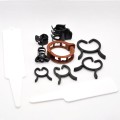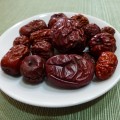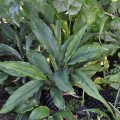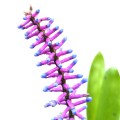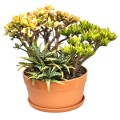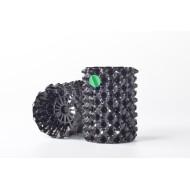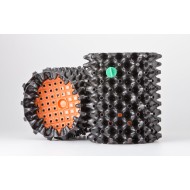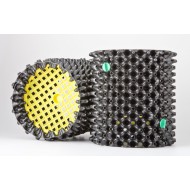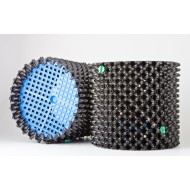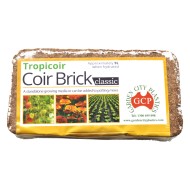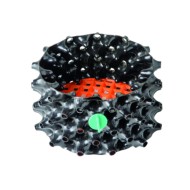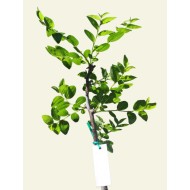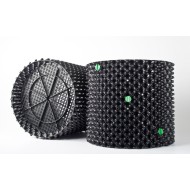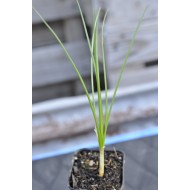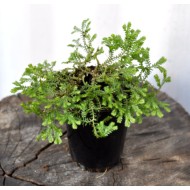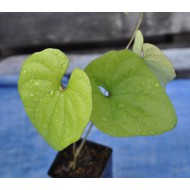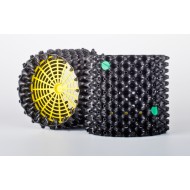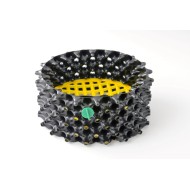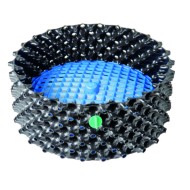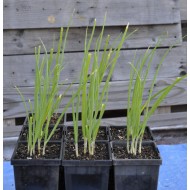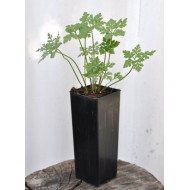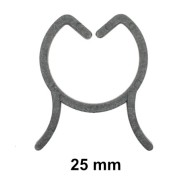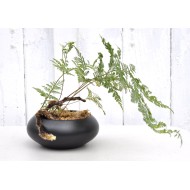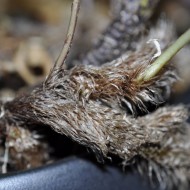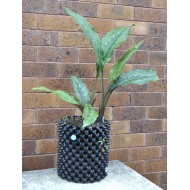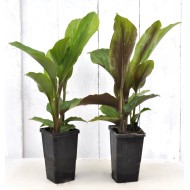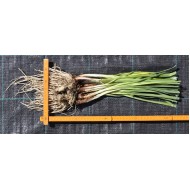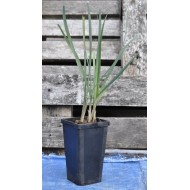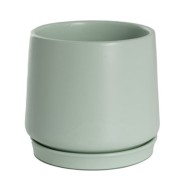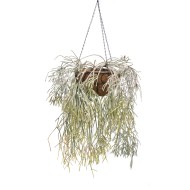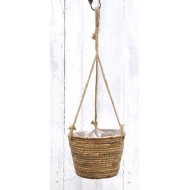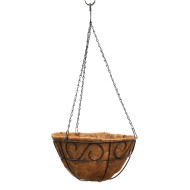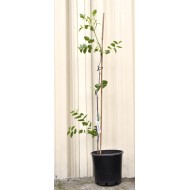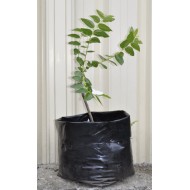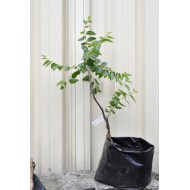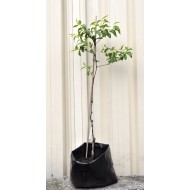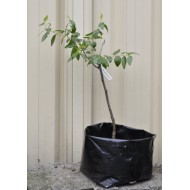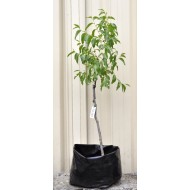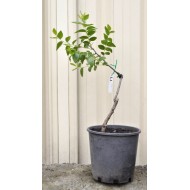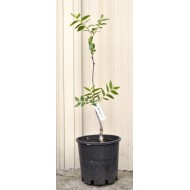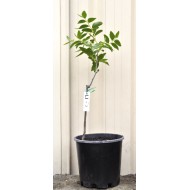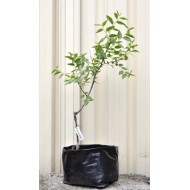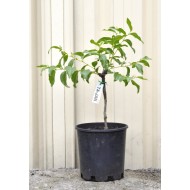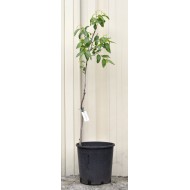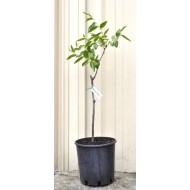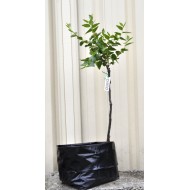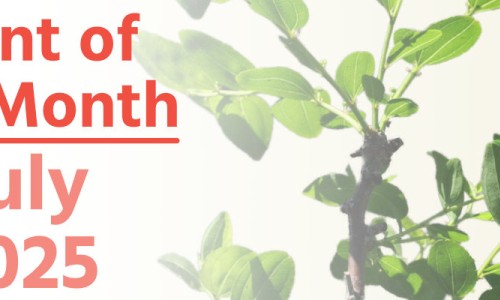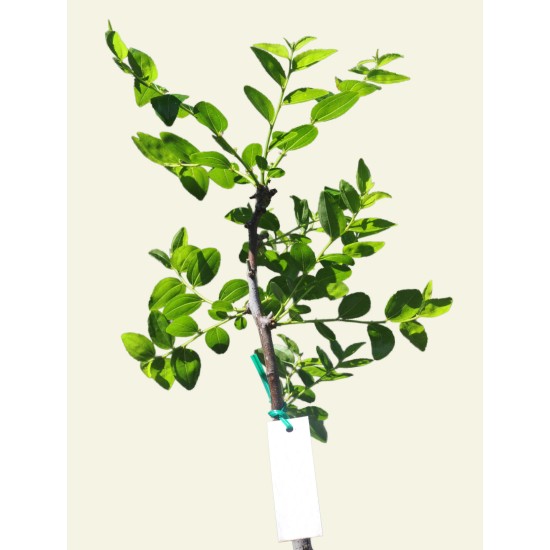
- Stock: Pre-Order
- Model: jujube-Porterville
Family: Rhamnaceae (includes buckthorns; Rhamnaceae is also known as the buckthorn family)
Genus: Ziziphus (includes Indian Ber)
Botanical/Binomial Name: Ziziphus jujuba Mill.
Meaning of Name:
Ziziphus, from Latin zīziphum, form Ancient Greek ζίζυφον (zízuphon): denoting the fruit; and
jujuba, from Mediaeval Latin jujuba (feminine singular of jujube): denoting the tree or fruit; and
Mill., abbreviated author citation for Philip Miller (1691–1771), Scottish botanist
Common Names: Jujube, Chinese Jujube, Chinese Date, Red Date, Chinese Red Date
Cultivar: Porterville
Botanical Characteristics: Woody | Perennial | Deciduous | Frost hardy
Delivery Information:
All trees are grafted and delivered bare-rooted every winter.
Next deliveries are July/August 2026.
Trees are delivered bare-rooted and dormant (no leaves). They are typically about knee-height, from 40 to 60 cm from tip of tree to end of roots. Some may be smaller.
Large orders are mostly hip-height trees and sent via courier.
PLEASE NOTE:
Ordering via this site locks in the price of tree(s) and cost of delivery by paying fully upfront.
But if you prefer to put down a 20% non-refundable deposit only for now, with balance not due until ready to ship July/August 2026, please get in touch to request an invoice by email — please advise name, delivery postal address, and the tree(s) you wish to order.
IMPORTANT:
We deliver to the ACT, NSW, Queensland and Victoria, but not within the Greater Sunraysia Pest Free Area (PFA) of Victoria and NSW owing to quarantine restrictions.
We also do not deliver to Northern Territory, South Australia, Tasmania or Western Australia owing to quarantine restrictions.
Description of Fruit:
Porterville is like Chico in shape and taste, but larger and with lobes like a pumpkin.
Early to mid-season ripening.
Good for both fresh eating and drying.
Description of Tree:
(The following information is from The Biosphere Blog on our sister site The Jujube Tree Nursery. More information can be found here and here.)
The jujube tree is deciduous. It can grow to 10 m high by 6 m wide, but keeping pruned to a height of 3–5 m makes management and harvesting easier.
It is native to climates with a yearly temperature range from around -5°C to 50°C, but can survive winters that get down to -30°C.
While growth in areas with cool summers can be very slow, the tree thrives in hot, dry environments with long summers and warm nights. Heat is crucial for flower production and fruit development, and jujubes require a range of at least 20°C to 25°C during the flowering stage for fruit to set. Unlike most fruit trees, jujubes have a very long period of flowering, often over a few months. If temperatures are too cool for the first flush of flowers to set fruit, later flowers usually will as the weather warms.
While summers can’t be hot enough, the tree does need around 200-400 hours of exposure to temperatures below 7°C over winter during dormancy. This is called its chilling requirement, and ensures vernalisation (the induction of the flowering process) occurs in spring.
Jujube trees flower later than other fruit trees, from November on, and are thus unaffected by late frosts that can devastate other fruit crops.
They can grow in a range of soils from acid to alkaline, but prefer deep and well-drained soils.
The rootstock will sucker, but easily kept under control with secateurs or even a lawn mower.
Delivery Information:
Our jujube trees are grown to order and delivered via Australia Post or courier (if in Sydney) the following winter. They are about knee-high, bare-rooted, and in a dormant state (no leaves). Larger orders are delivered mostly hip-height and by courier.
These young, dormant fruit trees look like sticks in the ground when potted up or planted out! It can be quite disconcerting if you’ve not experienced such trees before.
Don’t let their stick-like appearance fool you — these sticks are very much alive and their roots must not be allowed to dry out. We strongly recommend they be potted up or planted out as soon after receipt as possible.
If spring comes early for you, you’ll be rewarded just weeks after delivery with the first flush of leaves as the sun’s warmth and lengthening days awaken them. You may have to wait a little longer in the cooler parts of the country.
Each tree is different, even within the same type (cultivar). It also depends to some extent on climate as to how well they respond their first year with you, but most trees will need a year to settle in regardless before putting on a growth spurt. Others get going right away. They will all flower and fruit that same season — not always heavily, but don’t be disappointed if they don’t, for they will almost certainly make up for this the following year.
Our ‘Skin in the Game’ Trees:
Every year I keep back a couple of trees I call my ‘skin in the game’ trees. These are packed as if being sent to a customer, but allowed to shoot quite significantly while still in the box.
They are never planted out until at least two weeks after I know the last customer has received their trees. They always grow on beautifully — these are really tough trees! Even more proof of this was revealed back in 2021 when Australia Post was horrifically unreliable and slow with deliveries into Victoria — one customer did not receive their tree until four weeks later, meaning I was planting the skin in the game trees six weeks later! And still these amazing trees did not let either the customer, or me, down.
General Information on Tree Care:
(The following information is from The Biosphere Blog on our sister site The Jujube Tree Nursery. More information can be found here and here.)
The jujube tree is deciduous. It can grow to 10 m high by 6 m wide, but keeping pruned to a height of 3–5 m makes management and harvesting easier.
It is native to climates with a yearly temperature range from around -5°C to 50°C, but can survive winters that get down to -30°C.
While growth in areas with cool summers can be very slow, the tree thrives in hot, dry environments with long summers and warm nights. Heat is crucial for flower production and fruit development, and jujubes require a range of at least 20°C to 25°C during the flowering stage for fruit to set. Unlike most fruit trees, jujubes have a very long period of flowering, often over a few months. If temperatures are too cool for the first flush of flowers to set fruit, later flowers usually will as the weather warms.
While summers can’t be hot enough, the tree does need around 200-400 hours of exposure to temperatures below 7°C over winter during dormancy. This is called its chilling requirement, and ensures vernalisation (the induction of the flowering process) occurs in spring.
Jujube trees flower later than other fruit trees, from November on, and are thus unaffected by late frosts that can devastate other fruit crops.
They can grow in a range of soils from acid to alkaline, but prefer deep and well-drained soils.
The rootstock will sucker, but easily kept under control with secateurs or even a lawn mower.
Local pick-up is welcome — we’re in Gwynneville, near Wollongong University.
Pick-up is by mutual arrangement please, as we don’t have a shopfront.
Having said that, we are always here and more often than not can easily fit in with whichever day and time suits you best!
Feel free to suggest preferred pick-up time(s) in the comments box during checkout and we’ll reply as soon as we see the notification.
Especial Note Regarding Large Air-Pot® Orders
Depending on the order, we may suggest that large Air-Pot® orders are best sent directly to you from the warehouse.
Especial Note Regarding Jujube Trees
When posting out bare-rooted jujube trees, we routinely trim them to fit the box and keep postage costs to a minimum. These trees are typically knee-high when planted out, though some may be smaller.
This of course doesn’t apply for pick-ups, and in fact we will set aside the tallest trees specifically for this purpose. These trees can often be hip-high, and sometimes taller again.
Please note that this is not a guarantee, as heights of different cultivars can differ from year to year.

